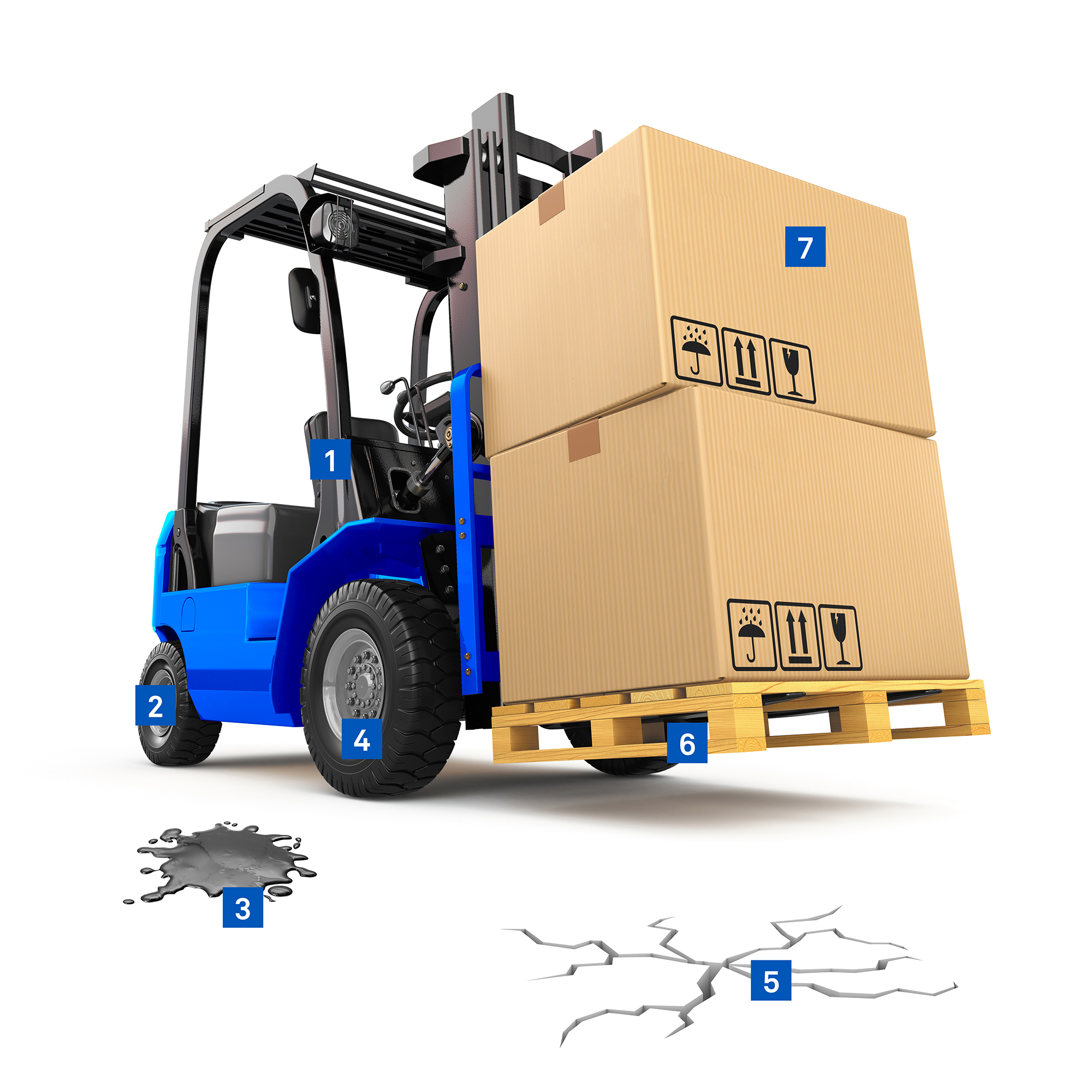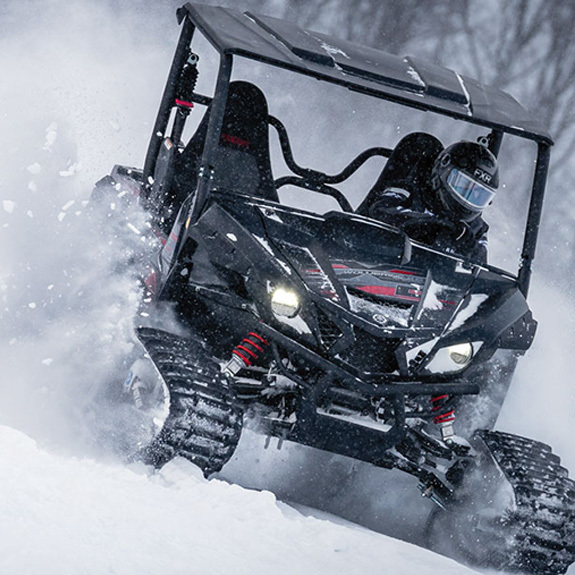The Impact of Tire Wear
*This article is based on the former versions of "The impact of tire wear" and "The impact of tire wear and when to replace your tires: training video series". The text was updated in June 2025.
When keeping track of the various powerful, hard-working components of an industrial forklift, it's easy to overlook some of the most subtle, yet crucial pieces: the tires.
They may not seem impressive but think about this: it is estimated that the average drive tire on a forklift carries more than 9,600 lbs., and unlike other vehicles, forklifts have no suspension systems to dissipate shock loads. The tires absorb every ounce of your forklift and its load, making it crucial to ensure they're safe to use at all times.
Understanding the consequences of worn forklift tires
Forklift tires are in danger of sustaining damage or simply wearing out through regular use. It may be easy to look at a functioning tire and say, "It seems like it works to me," but you may be taking a serious risk by ignoring the signs that tires should be retired from service. As a tire wears, it can no longer perform as well as when it was brand new, leading to performance and safety issues.
It is important to switch out your tires after they sustain a certain amount of wear or any notable damage, as these conditions can cause:
1. Fatigue and job stress
Operators who use a forklift with chunked, worn or flat spotted tires have increased fatigue and job stress, possibly making them less careful and productive.
2. Stability issues
Kingpin is subjected to excessive stresses from shocks and uneven operation. This can cause potential stability issues and unstable operations.
3. Engines and transmission leak
Decreased ground clearances subject the truck to more damage to assemblies’ underneath. Having little to no cushion from worn forklift tires can loosen hardware on the unit which can cause engines and transmissions to leak.
4. Air tire blowing
Air tires risk blowing out, which can cause a tip over or lost the load.

5. Facility damage
The floors in your facility can experience damage due to bad forklift tires.
6. Accelerated fork heel wear
Fork heel wear is accelerated as it becomes easier for an operator to drag the forks.
7. Loads can be compromised
Loads can be compromised by the constant jarring and rocking, leading to damaged product and safety issues such as an upset forklift load falling on an employee.
8. Increased fuel consumption
Worn out tires lead to increased fuel consumption, impacting your operational costs and efficiency.
When to replace your forklift tires
Whether forklift tires simply wear out through regular use or experience damages and conditions leading to tire failure way before their expected end of life, it's important to pay attention to the signs of wear and switch out your tires on time to reduce downtime and ensure safe and effective operations. However, tire maintenance is too often overlooked and it can be confusing to know when to replace your tires.
The most common question our Material Handling experts get is: "How do I know it's time to replace my forklift tires?" As signs of wear differ depending on the type of tire installed on your forklift truck, knowing how long should forklift tires last and when to replace them can be confusing. To help you recognize the warning signs, here's a short guide depending on the type of tires installed on your machine.
If you're short of time, look at this video in which Mike Fantauzzi shares tips on how to identify the impacts of tire wear, and when to replace your tires.
Solid resilient tires
For solid resilient tires, there are specific forklift tire wear indicators to watch for. These tires have particular wear patterns that indicate when replacement is necessary. Look for chunking, cracking, or significant wear on the tread surface.
Industrial pneumatic tires
For industrial pneumatic tires, checking how much tread is left on the tire is key. Learn how to use a tread depth gauge as your forklift tire wear indicator, and what to look for. Proper tread depth is essential for maintaining traction and safety.
Press-On tires (cushion tires)
Wondering how to change press on forklift tires? Understanding when it's time for replacement is the first step. As signs of wear differ for press-on tires, knowing how long should your press-on last and when to replace them can be difficult. Here are some general rules to help you determine if it's time to change your cushion tires. Press-on tires typically show wear through reduced cushioning and visible surface deterioration.
Solideal forklift tires: your solution for reliable performance
Solideal forklift tires are designed to provide optimal performance and longevity for your material handling operations. Our expert team understands the critical importance of proper tire maintenance and replacement timing. When you choose Solideal forklift tires, you're investing in:
- Superior durability and performance
- Expert guidance on tire maintenance
- Comprehensive support for all tire types
- Solutions that reduce operational downtime
Ignoring the signs that it's time to replace your forklift tires could lead to several unnecessary risks to your material handling operations like operator stress, compromised loads and facility damage. By understanding the impact of tire wear, recognizing the proper forklift tire wear indicators, and knowing when and how to change press on forklift tires or other tire types, you can maintain safe and effective operations while reducing downtime.
For more information about Solideal forklift tires and our material handling solutions, visit our product pages. If you'd like more training on material handling tires, our experts are available to provide comprehensive guidance tailored to your specific needs.



























